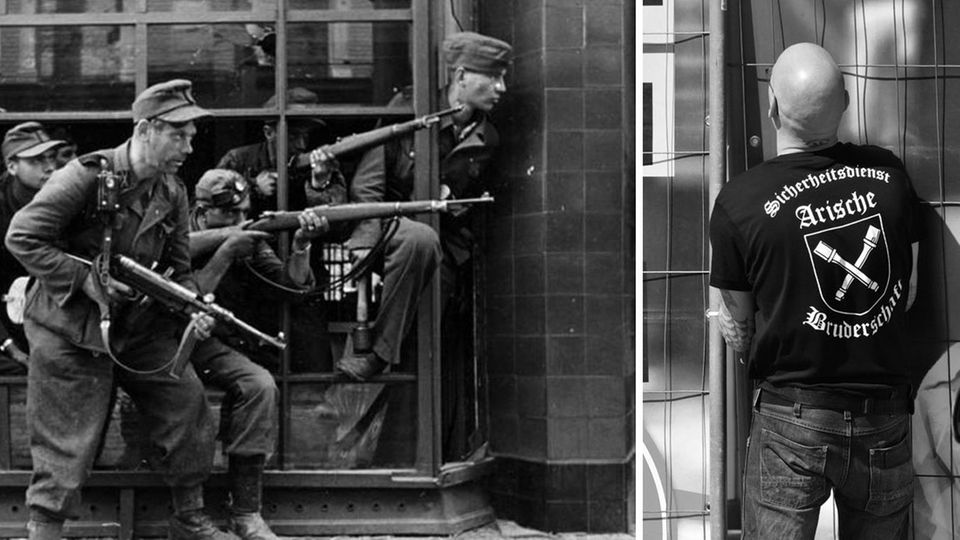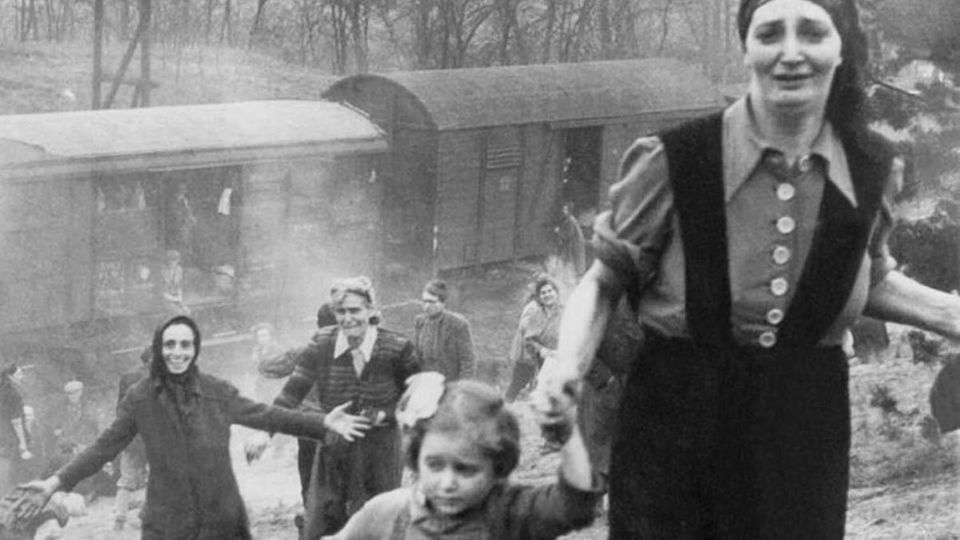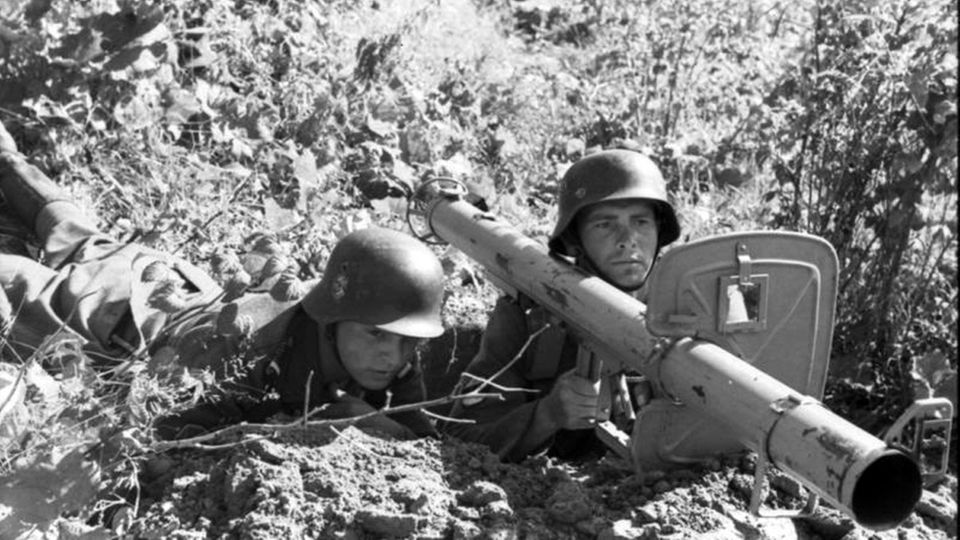Between 1939 and 1942, Renia Spiegel wrote about how her country, Poland, was crushed by the Germans and how Jews like her were disenfranchised and persecuted. But she also writes about a great love that the Nazis were unable to destroy
At the beginning of 1939, Renia Spiegel, then 15 years old, began keeping a diary. Renia didn’t know what horrors would come to the unfortunate Poles and especially to her, the Jew, in the next few years. She also had no idea how quickly and brutally her life would end.
She wrote more than 700 pages. She wrote about her longing, wrote appeals to her parents and left funny stories about her friends. The whole cosmos of a young, wonderful life. This is where Renia’s diary differs from Anne Frank’s famous diary. She was younger and wrote from the oppressive perspective of her hiding place, where the Frank family hoped to survive Nazi rule.
Cheerful girl
And so the diary of the vital girl from Poland develops an eerie pull. Because she – like her contemporaries – did not know what history had in store for her, but the reader is aware of the inevitable catastrophe. This background gives the cheerful passages of Renia’s entries an oppressive undertone.
In January 1939, Renia wasn’t thinking about Hitler in Berlin. She was disappointed and alone. The mother is far away in Warsaw, the father is on the beloved farm where the girl grew up. Her mother had accompanied her littlest sister; the eight-year-old was an aspiring child star. Renia and her sister Ariana were deported to live with their grandparents in sleepy Przemysl.
After the Germans invaded Poland in August 1939 and quickly crushed the country, the family found themselves in separate zones. The Germans marched into the capital, Warsaw. The small town of Przemysl was occupied by the Red Army because Hitler had promised Stalin large parts of eastern Poland in a secret agreement.
A love that outlasted the Nazis
But the girl had her own view of the world. Renia wrote: “What does it matter that they divided the lands, that they separated brothers, that they sent children far away from their mothers?…The clouds, the birds and the sun laugh at these borders, at people, at theirs Weapons. They go back and forth, smuggling rain, blades of grass, rays of sunshine. And no one even thinks about banning them. If they even tried, the sun would burst out laughing and they would have to close their eyes. The clouds, birds and the wind would follow. So would my little human soul and many of my thoughts.”
The diary bears witness to a teenage life from 1939 to 1941. Because Renia fell in love with a boy named Zygmunt Schwarzer. On September 21, 1940, Renia noted: “Today I met a boy named Zygmunt S. Nora admitted that she liked him too, but since she knew he was exactly my type, she let it go. Nora did Maciek has sweet, sweet Natek and Irka. And me? I don’t know how it’s going to go and I don’t really have much self-confidence.”
The life of a teenager
Renia had no idea that this boy would soon risk his life for her and that he would love her through the war, the persecution and her death until the end of his life. The reader knows that the Nazis were already planning to kill the Jews back then. At the same time, he follows the traces of a teenage love story, so lively and hopeful, as if the whole world were open to Renia.
“When I see Zygmunt, I get this blissful, pleasant feeling that’s uncomfortable at the same time. Something paralyzes me. Ah, that idiot, if only he knew how much I love him.”
Renia observed the Soviet occupation and communist propaganda with interested but also distant curiosity – her thoughts revolved around her love. About balls, the stars in the sky and first kisses.
Then the German Wehrmacht invaded the USSR. The Red Army was forced out of Poland and had to retreat to Moscow in the same year. When the Red Army finally recaptured Przemysl on the way to Berlin, Renia had long been gone.
With the Germans came terror
On June 26, five days after the German offensive began, Renia was filled with fear.
“I can’t write. I’m weak with fear. War again, war between Russia and Germany. The Germans were here, then they withdrew. Terrible days in the basement. Dear God, give me my mom, save us all. ( …) I want to live so badly. I humble myself before you and beg in all of our names. Tonight will be terrible. I’m scared.”
Soon afterwards, on July 1, 1941, the Nazi reign of terror reached Renia.“Tomorrow I, along with all the other Jews, will have to start wearing a white bracelet. For you, my diary, I will always remain the same Renia, but for everyone else I will now become someone inferior: a girl with a white one Bracelet and a blue star.
(…) I am writing this while I am still independent and free. Tomorrow I will be someone else – but only from the outside. And maybe one day I’ll greet you as someone else. Give me this, Lord God, I believe in you.”
In July she was locked in a closed ghetto behind barbed wire. “Today at 8 a.m. we were locked up in the ghetto,” Renia wrote. “I live here now, the world is separate from me, and I am separate from the world.”
Desperate rescue attempt
Her young lover was now with the resistance. The situation in the ghetto becomes desperate.
On March 25, 1942, Renia writes:
“They are closing our quarters, they are driving people out of the city. There are persecutions and illegalities everywhere. And there is also spring, kisses, sweet caresses that make me forget the whole world.”
In the midst of Nazi terror, Renia experienced love.
“Now I know what the word ecstasy means. It is indescribable; it is the best that two loving creatures can achieve. For the first time I felt this longing to become one. (…) To bite and to kiss and to squeeze , until the blood comes. And Zygmunt talked about how he would be the best man for me.”
Zygmunt managed to get the sisters Renia and Ariana out of the ghetto just before the Germans picked up all the Jews to send them to a death camp. He hid Renia and his own parents in an uncle’s attic. A friend’s Christian father hid her 12-year-old sister.
The three were tracked down in the attic by the Germans. The last entry in the diary comes not from Renia but from the desperate Zygmunt: “Three shots! Three lives lost! All I can hear are shots, shots.”
Love until death
Ariana survived the war – her mother Roza managed in an adventurous way to get fake papers that made mother and child Catholics.
Zygmunt Schwarzer also survived the war and concentration camp imprisonment. He died in 1992. He kept the diary and the keepsake. He built a shrine for Renia in his house. Before his death he wrote in the diary. “I saw Renia’s sister. This blood connection is all I have left. It’s been 41 years since I lost Renia……Thanks to Renia, I fell in love for the first time in my life, deeply and sincerely. And I was loved by her in an extraordinary, uncanny, incredibly passionate way.”
The diary has been published in English translation: Renia’s Diary: A Holocaust Journal. The article “How an Astonishing Holocaust Diary Resurfaced in America” describes in detail the lives of the survivors after the war and explains why the diary remained hidden for so long.
On the side of the “Renia Spiegel Foundation” you will find further information about her and the diary in German.
Also read:
Moment of liberation – how a handful of soldiers stopped a Nazi death train
Oskar Dirlewanger – that’s why neo-Nazis worship the worst sadist in the SS
Hitler boy Wilhelm Hübner – “Our Adolf has become an old man”




